Articles by Evan Y. Yu, MD

Evan Y. Yu, MD, discusses how the presentation of a patient with metastatic castration-resistant prostate cancer (mCRPC) involves evaluating factors such as disease progression despite androgen deprivation therapy, symptoms, prior treatments, and performance status to guide the selection of appropriate therapeutic strategies for managing this advanced disease state.

Evan Y. Yu, MD, discusses how adding chemotherapy to a doublet regimen for metastatic hormone-sensitive prostate cancer may be considered on an as-needed basis, particularly for patients with high disease burden or rapid progression, while carefully weighing the potential benefits and risks of intensifying therapy.

Evan Y. Yu, MD, discusses how community oncologists can critically weigh the evidence from studies on androgen deprivation therapy plus androgen receptor pathway inhibitors regimens by considering factors such as efficacy, safety, patient comorbidities, and treatment preferences, and how the collective trial results guide individualized treatment decision-making to optimize outcomes for patients with metastatic hormone-sensitive prostate cancer.

Evan Y. Yu, MD, discusses how safety data for first-line androgen deprivation therapy plus androgen receptor pathway inhibitors (ARPI) regimens such as darolutamide, abiraterone, enzalutamide, and apalutamide reveal clinically relevant distinctions in their safety profiles, including the most common and challenging toxicities, incidence of grade 3 or higher adverse events, treatment discontinuations, and potential drug-drug interactions. He highlights key factors that influence treatment choice and disease management in patients with metastatic hormone-sensitive prostate cancer.

Evan Y. Yu, MD, discusses how the ARANOTE study, which evaluated androgen deprivation therapy (ADT) plus darolutamide for metastatic hormone-sensitive prostate cancer (mHSPC), aimed to assess the efficacy of this combination therapy in a patient population with newly diagnosed mHSPC. He compares its design and objectives with other established ADT plus androgen receptor pathway inhibitor (ARPI) doublet regimens such as LATITUDE, STAMPEDE D, ENZAMET, ARCHES, and TITAN, and how the study’s results, particularly its efficacy data, compare with those from other trials using abiraterone, enzalutamide, and apalutamide in the first-line setting.

Evan Y. Yu, MD, discusses how the presentation of a patient with metastatic hormone-sensitive prostate cancer (mHSPC) involves evaluating key clinical features such as disease extent, symptoms, and performance status to guide treatment decisions and the selection of appropriate systemic therapies.

Evan Y. Yu, MD, discusses how individualized first-line systemic therapy selection for metastatic hormone-sensitive prostate cancer (mHSPC) involves considering factors such as disease burden, patient performance status, and comorbidities while weighing the pros and cons of current options—such as chemotherapy-sparing regimens, androgen receptor pathway inhibitor (ARPI) selection, and the use of triplet versus doublet combination therapies—to optimize efficacy and minimize adverse effects based on each patient’s unique clinical profile.

Evan Y. Yu, MD, discusses how systemic therapy options for newly diagnosed metastatic hormone-sensitive prostate cancer include androgen deprivation therapy (ADT) combined with chemotherapy or androgen receptor pathway inhibitors (ARPIs) such as abiraterone or enzalutamide, with the choice of frontline treatment depending on factors such as disease burden and patient characteristics, while also considering the structural and physical differences between these ARPIs, which may influence their efficacy and adverse effect profiles.

Evan Y. Yu, MD, discusses how the goals of therapy for a patient with newly- diagnosed metastatic hormone-sensitive prostate cancer are to control disease progression, extend survival, maintain quality of life, and delay the transition to castration-resistant prostate cancer.

Evan Y. Yu, MD, introduces case 1, a 68-year-old patient with newly diagnosed metastatic hormone-sensitive prostate cancer (mHSPC), highlighting the clinical presentation, diagnostic workup, and treatment considerations for high-volume metastatic disease.
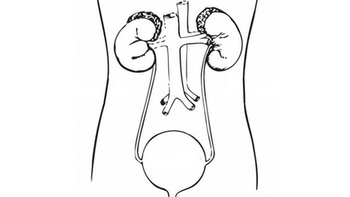
During a Targeted Oncology Case-Based Roundtable event, Evan Y. Yu, MD leads a discussion on hereditary germline mutations impact on prostate-cancer risk.
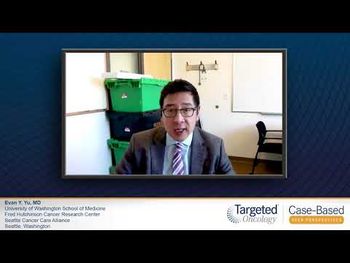
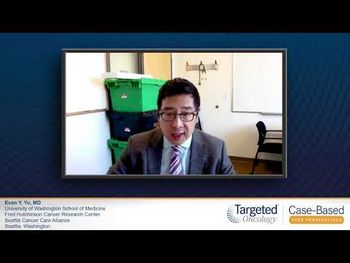
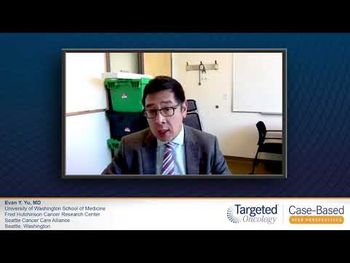
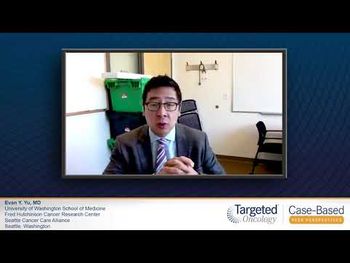
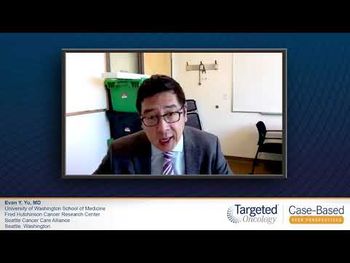
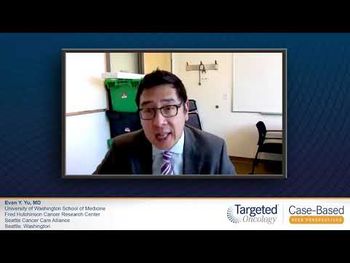
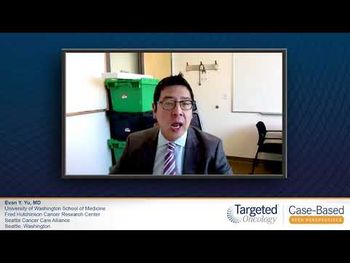

Evan Y. Yu, MD, discusses the case and subsequent palliative treatment plan for a patient with metastatic castration-resistant prostate cancer.
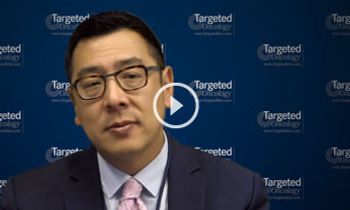
Evan Y. Yu, MD, discussed the key takeaways from the phase Ib/II KEYNOTE-365 trial, which evaluated different novel pembrolizumab (Keytruda) combinations in patients with metastatic castration-resistant prostate cancer.

Evan Y. Yu, MD, associate professor, Department of Medicine, Division of Oncology, Seattle Cancer Care Alliance, discusses the utility of PET imaging for the treatment of patients with prostate cancer.
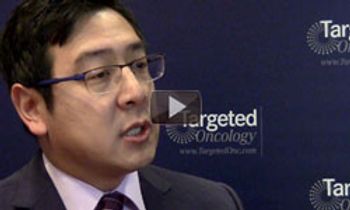
Evan Y. Yu, MD, discusses the role of PET imaging in prostate cancer.




















